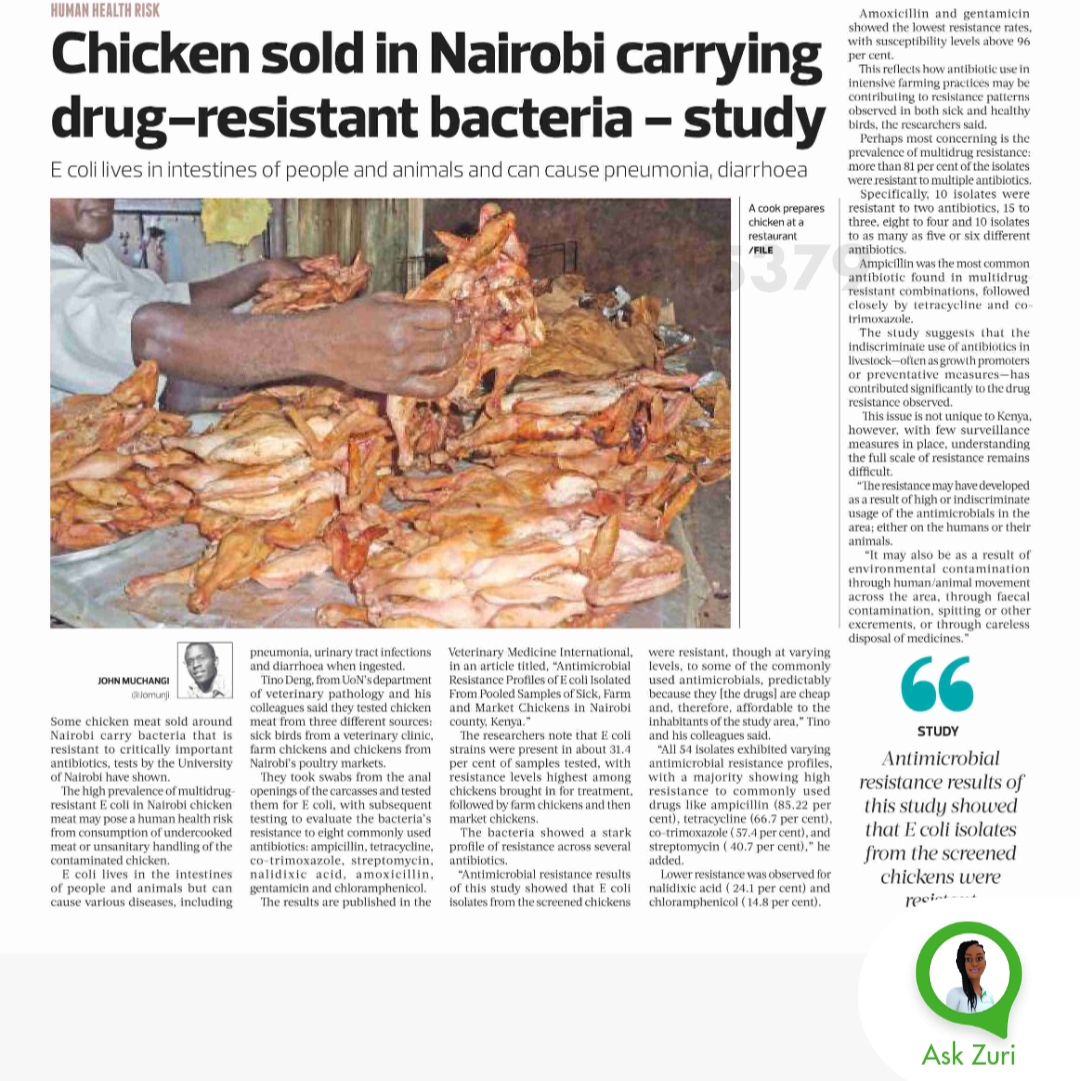A study by the University of Nairobi has revealed worrying levels of drug-resistant Escherichia coli (E. coli) in chicken sold across Nairobi, raising public health concerns.
The findings have sparked outrage, with Nairobi Governor Johnson Sakaja’s administration coming under heavy criticism for its failure to address the issue.

Nairobi Gov Johnson Sakaja. Photo: Sakaja Johnson Source: Facebook
Residents argue that Sakaja’s government, already plagued by vices such as corruption, unchecked noise pollution from clubs and hotels, and lax enforcement of public health standards, has allowed the situation to spiral out of control.
Nevertheless, the study found that 31.4% of chicken samples tested in Nairobi markets carried multidrug-resistant E. coli, a bacteria that can cause severe illnesses like pneumonia and diarrhoea when ingested. Dr. Timno Deng from the University of Nairobi’s Department of Veterinary Medicine, who led the study, noted that the bacteria were resistant to critical antibiotics, including amoxicillin and gentamicin.

Johnson Sakaja smiles during a past UDA meeting
Experts blame a culture of informal trading practices, known locally as handouts, and tokenism for the unregulated sale of contaminated chicken.
Despite promising to enhance public health and food safety, Sakaja’s administration has yet to make significant strides in controlling the food supply chain.
The study also found that farm-reared chickens exhibited higher levels of bacterial resistance compared to those sold in open markets, suggesting poor poultry farming practices as a contributing factor.
With the threat of antimicrobial resistance looming, health experts and residents are demanding immediate action. Calls are growing for stricter regulation of poultry farming, improved hygiene standards in markets, and an overhaul of Nairobi’s food safety policies.
Critics say that without urgent reforms, Sakaja’s administration risks leaving Nairobians exposed to an escalating public health crisis.

Screenshot from the Star Newspaper November 16 Edition



